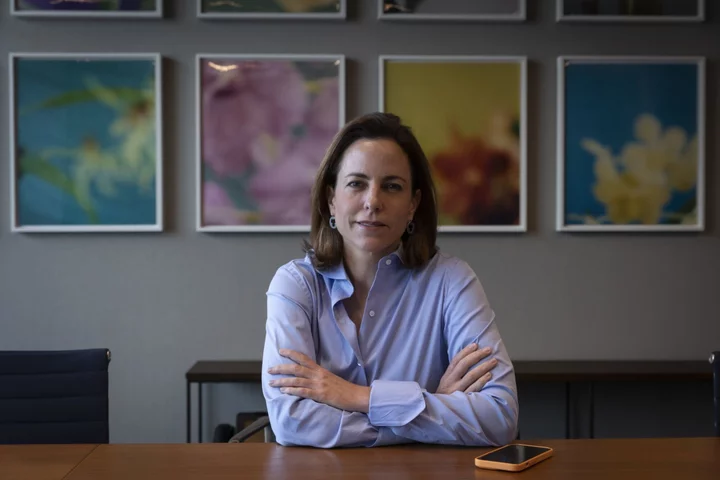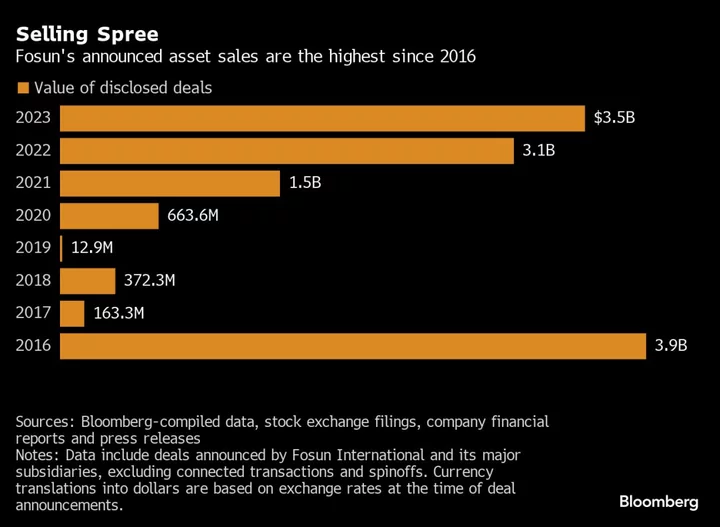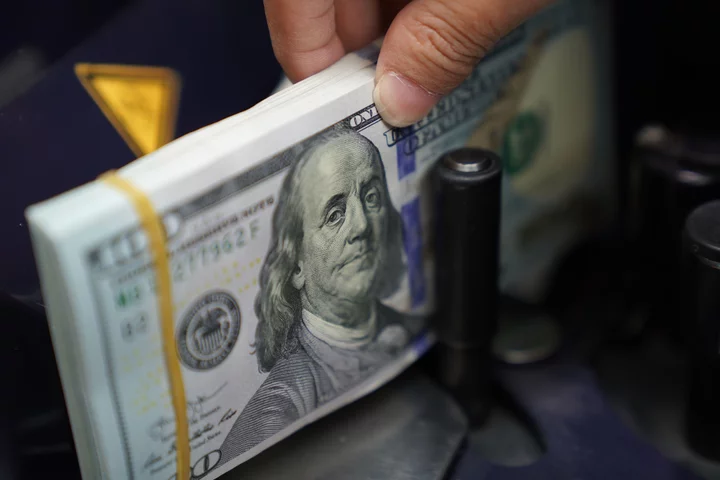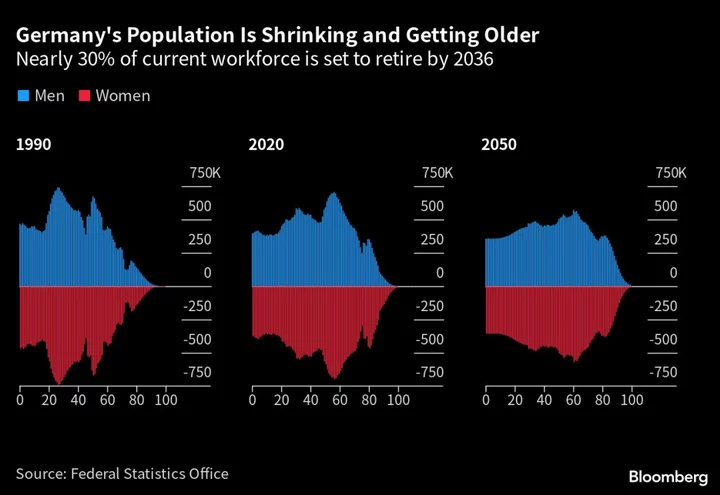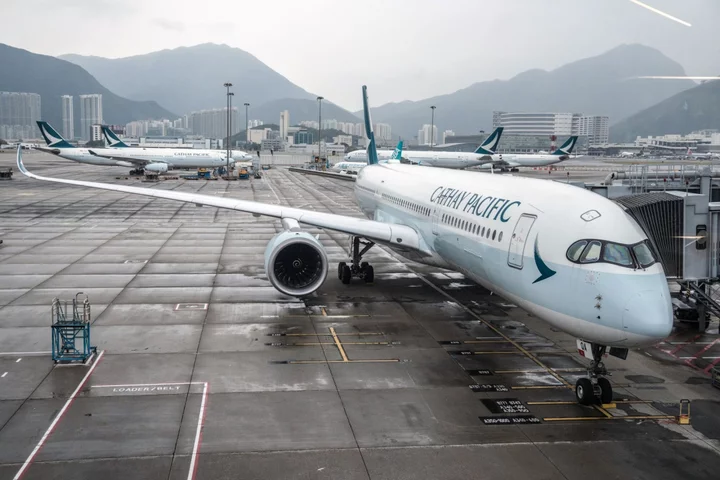Adriana Cisneros has been obsessed with satellites ever since she was a child in Venezuela. Now, after a decade of leading her billionaire family’s conglomerate, she’s turned that obsession into one of her biggest bets yet.
Cisneros Group, which holds assets ranging from the wildly popular Miss Venezuela pageant to a luxury resort development in the Dominican Republic, is expanding with an investment in AST SpaceMobile Inc. Founded by a fellow Venezuelan, it seeks to offer a space-based broadband cellular network from its patented satellite technology, bringing telecommunication services to rural parts of the world.
So far, it’s been a rocky experience — AST has shed nearly 70% of its value since going public via a blank-check company in 2021, including a 17% plunge over the past two trading days. But Cisneros, 43, is convinced the investment will pay off.
She led the Series A round for the Midland, Texas-based company with a $10 million initial investment and then helped bring in big-name backers like Vodafone Group Plc, Rakuten Group Inc. and American Tower. The company launched its first satellite in September and has signed deals with the world’s leading telecom companies, she said. Cisneros has a 4.7% stake in the firm that’s currently worth about $38 million.
Read More: Musk, Rivals Edge Closer to Satellite Phones After FCC Nod
“If AST works, it’s going to be bigger than anything I’ve — that we’ve ever touched at Cisneros,” she said recently in an interview from the group’s Miami headquarters.
That would be a tall order.
During the second half of the 20th century, the Cisneros family was one of the most powerful and wealthy in Latin America from their base in Venezuela. A small material-transport business founded by Adriana’s grandfather, Diego Cisneros, grew into a giant holding company that represented well-known brands from the US including Pepsi, Studebaker cars and Pizza Hut franchises.
Her father Gustavo, now 78 and retired, turned Cisneros Group into a media powerhouse with the Venevision TV network that produced and broadcast soap operas and other shows around the world, including the Miss Venezuela beauty pageant. Wary of increased political turmoil in Venezuela in the late 1990s and the need to fulfill contracts to produce hundreds of hours of content, he relocated the company and his family to Miami, a move that proved prescient given the volatility that followed the election of Hugo Chavez.
He helped build Univision, the Spanish-language network, before eventually exiting for a profit in 2007. The group also took a stake in satellite TV provider DirecTV — an investment that allowed Adriana to witness the launch of a satellite that would beam cable television across Latin America — which it sold around the same time.
As Adriana Cisneros begins her second decade in charge of the conglomerate, she said the same spirit that drove her grandfather and father to build and sell businesses is very much alive.
‘Quite Opportunistic’
While Venevision still produces news and vies for live sports rights in Venezuela, it no longer creates big-budget soap operas and total headcount there has fallen 80% to 600 employees. Investments have picked up recently, however, as advertisers return following a rocky decade.
Many family businesses in Latin America struggle to make it past the third generation, but theirs has been “quite opportunistic,” she said.
“Decade by decade we would identify trends, geographies, industries that we thought were interesting and then we would do deep dives in those and then exit, move on or keep some,” Cisneros said.
After taking over in 2013, she built a digital ad sales business in Latin America that grew through a partnership with Meta Platforms Inc. to eventually have $500 million of annual revenue. She sold it in 2021 to Entravision.
With part of the proceeds, she recently bought a 25% stake in the Electric Factory, a Uruguay-based startup that uses artificial intelligence, virtual reality and metaverse initiatives to build tech strategies for companies.
“I’m really going to be very focused on trying to build that business up to be a proper global player,” she said.
Miss Venezuela
She currently sits on the boards of AST, the Electric Factory and Mattel Inc. after receiving an invitation from long-time acquaintance Ynon Kreiz, the toy company’s chief executive officer who’s basking in the success of the recently released Barbie movie.
Some of the takeaways from Barbie’s success are applicable to the Cisneros Group’s strategy around the Miss Venezuela business, she said.
Miss Venezuela is like the Super Bowl for Venezuelans, she said. It’s no longer just a one-night event and instead unfolds over six months with content about the contestants that produces more revenue and brings in major brands.
A Venevision super app will be rolled out soon to expand offerings not only to Venezuelans at home but also to the nearly 8 million that have left over the last few decades. Miss Venezuela will be a large part of the offering and ads will be sold in the location where viewers are watching.
“There’s a huge global community of Venezuelans now in all the major cities and they also want to feel connected with home,” she said. “It’s a really cool multiplatform mega-experience that made it really interesting for us to start investing again in our TV network in Venezuela because our audience is global now.”
Dominican Resort
Cisneros Group doesn’t publish financial information and she declined to comment on annual revenue figures. The company has 800 full-time employees and offices in Miami, New York, the Dominican Republic, Venezuela and Spain.
Besides the media and startup investments, the family is developing a $200 million real estate project in the Dominican Republic on land northwest of Punta Cana purchased over the past 35 years.
Tropicalia, as the project is known, will have 5 kilometers (3.1 miles) of beachfront, a five-star hotel, private residences and a golf course. Construction is underway, though it could take 50 years to fully develop the land — some 2,590 acres — she said.
Back in Miami, the walls of Cisneros Group’s headquarters in the city’s Downtown neighborhood are decorated with artwork from the family’s collection. Adriana’s mother, Patricia Phelps de Cisneros, is a prominent collector of contemporary Latin American art and has donated hundreds of pieces to museums, including MoMA in New York and the Reina Sofia in Madrid.
The youngest of three children, Adriana said the conversation with her father to take over the business lasted about four years. Her brother and sister aren’t involved. If there were any doubts who’s in charge, a placard on her desk reads “La Jefa” — The Boss.
“We’ve sold all of our businesses that people thought we would never sell,” she said. “Now we’re going to do it again.”
(Updates share move in 3rd paragraph. A previous version corrected spelling of American Tower in 4th paragraph)

